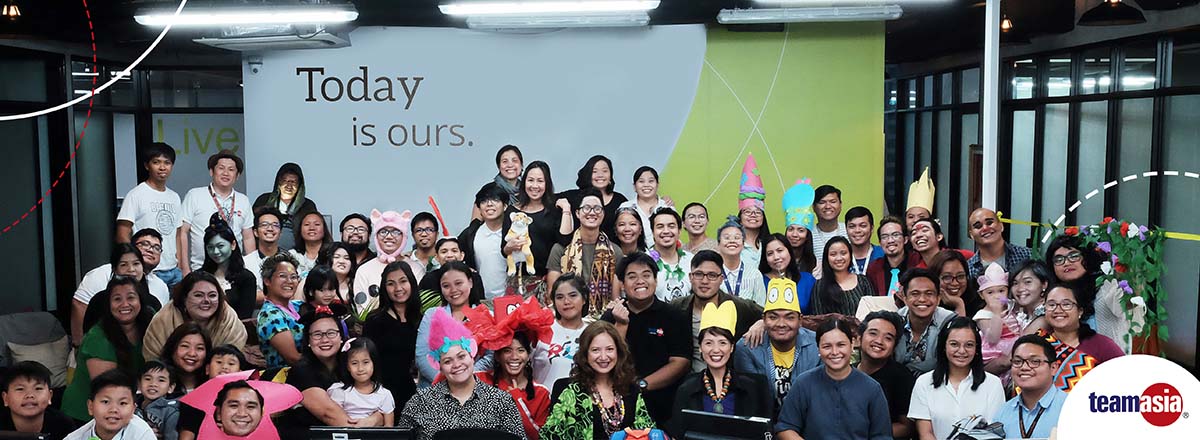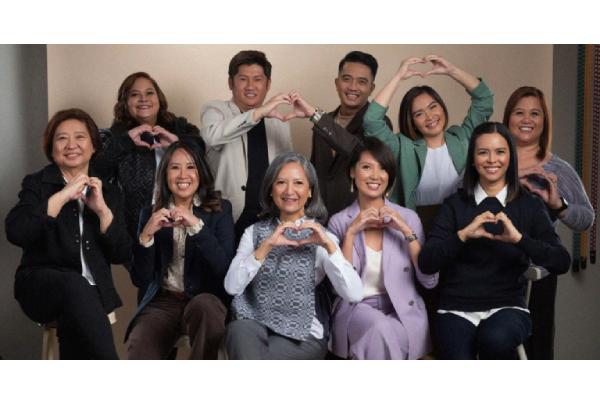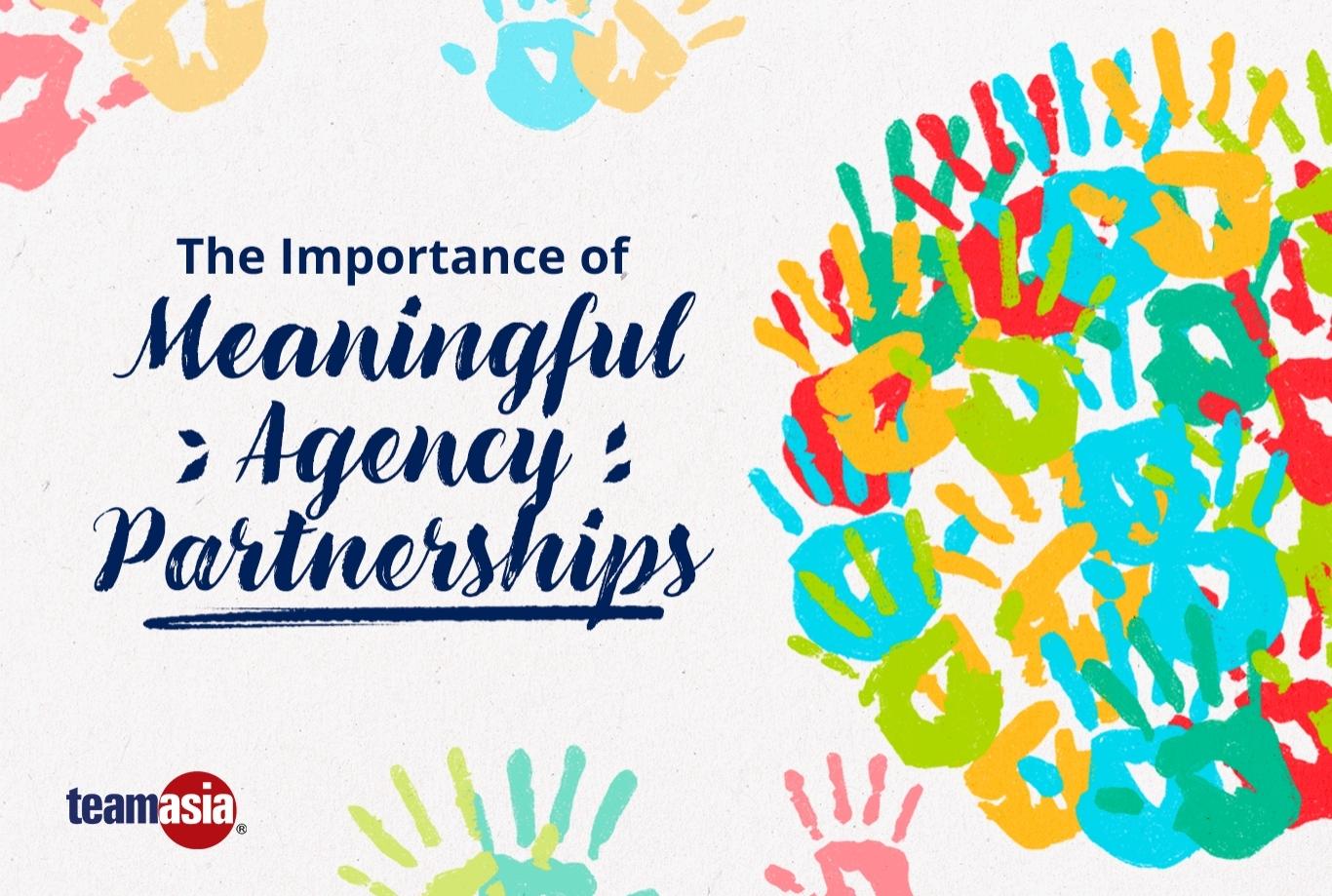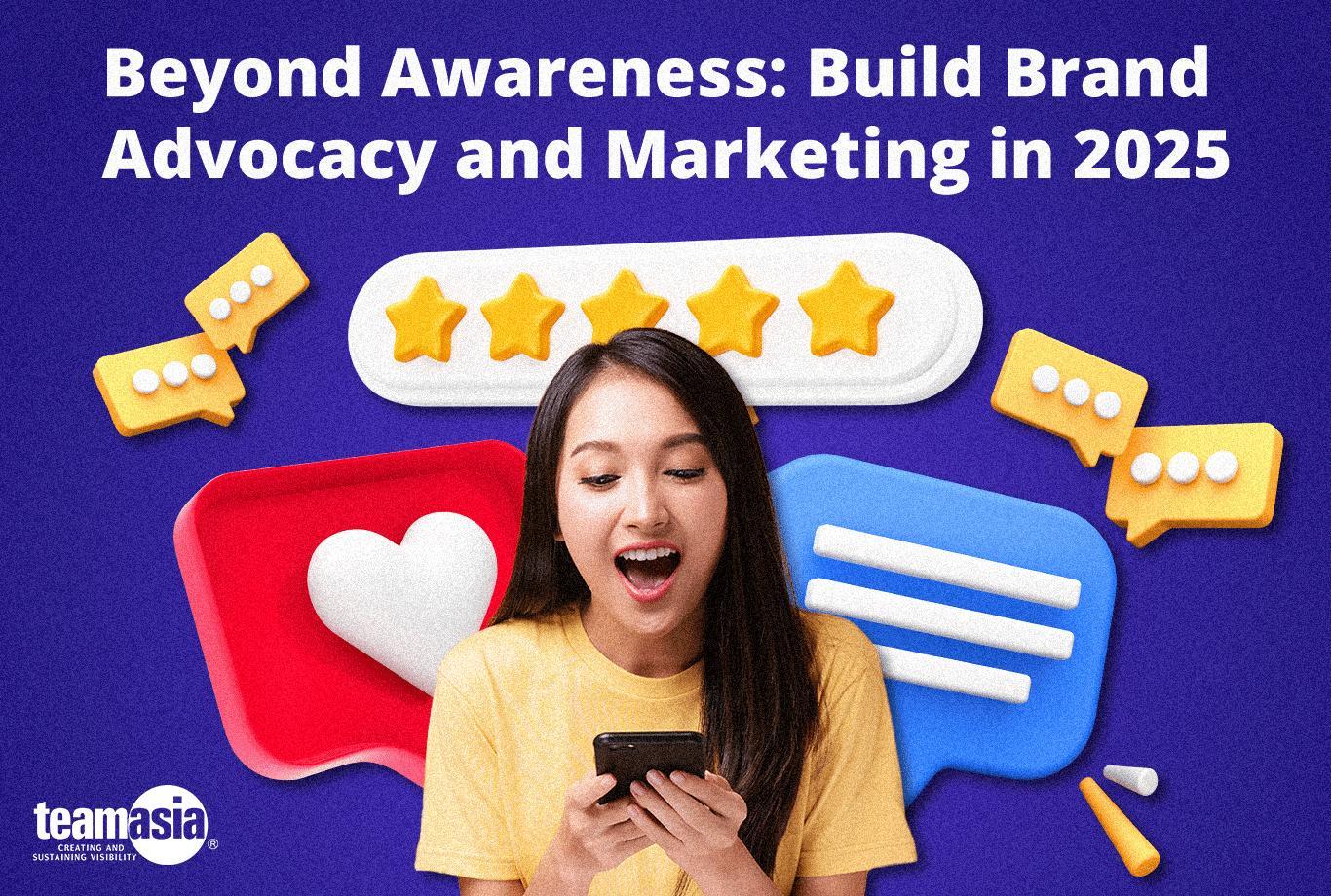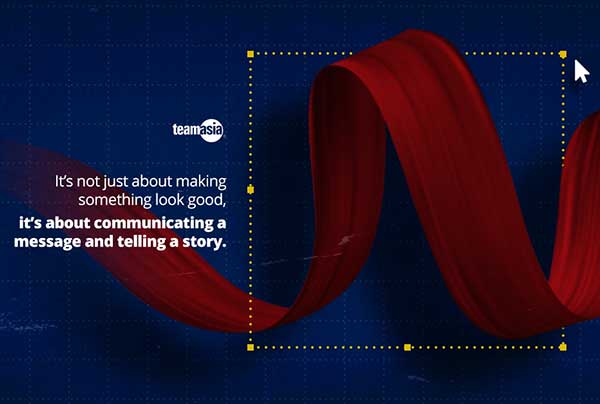Staying Alive: Employee Engagement in 2019
With rapid digitization and tech adoption heralding the future of business, the human touch is needed more than ever. According to the latest “Future of Jobs Report” of the World Economic Forum (WEF), soft skills like creativity, emotional intelligence, and resilience will be essential in bringing the workforce into the Fourth Industrial Revolution.
Artificial intelligence can replicate, and exceed, a human worker’s productivity. But tomorrow’s companies will need to ensure that, in their endless bids to optimize, people aren’t streamlined out of the picture. In some companies, initiatives that help keep this “humanity” intact are already being practiced.
Taking a breather
For TeamAsia, a local integrated marketing communications firm, their monthly Pop-Up has been an integral part of their culture since 2013. The employee engagement activity was designed to give the employees a breather from the fast-paced daily grind of advertising. A team comprised of representatives from each department conceptualizes and organizes the activities for each month, all of which follow a yearly theme based on one of the company’s five philosophies.
Their theme for 2018 was Project Live, which revolved around giving back to communities and the environment. One Pop-Up called Spring Cleaning had each department invent a new product using recycled materials. For another, each employee was given reusable utensils to avoid plastic usage. Every October, they celebrate a special Halloween Pop-Up called TAkot which extends the participation to the employees’ families through trick-or-treating.
Bea Lim, the company’s Managing Director, observed that these Pop-Ups strengthened their community spirit. “We all come together each time to be together and enjoy each other’s company to discover and explore from one another. The environment is not only a place where people can just relax and recharge, but it’s also a place where you can discover more about your teammates and your family members.”
Forging connections
According to a recent PwC Consulting study, 59% of consumers feel that companies no longer have a human element in their customer experience. Furthermore, 74% of non-American consumers want more human interaction in the future. Bea finds that this will carry on to employees’ attitudes toward their workspaces in the future. “In the midst of all that technology can achieve, at the end of the day, people would want to keep in touch with their humanity… This is why it is crucial for companies to prioritize employee engagement activities.” And this doesn’t only inspire employees to be better, more creative workers, but it reflects in the way they interact with clients, she said.
“It starts with the Pop-Up. Aside from the events that we mount, you really see the teamwork here because [the entire department’s] complete,” said Abigail Bibat, senior exhibits and production associate. “Sometimes with work, we have to divide it among ourselves. But when it comes to the Pop-Up, we all really work together.”
The initiative also touches employees on a more personal level. Aire Desamero, a newly-hired account executive, said that the Pop-Up not only helped welcome her to TeamAsia but also made her feel closer to her colleagues. “It’s a really fun experience because we’re family with work and we’re also family in terms of… getting to see all the kids, and their personal side. It really brings out the camaraderie and the relationship.”
With heart, at the heart
As the demand for technology and the human touch rise, both elements are foreseen to interplay closely with each other. Human creativity, further powered by data and technology, will produce more meaningful and impactful innovations. This will make engagement all the more valuable for employees. “It is a sacred space where people can keep in touch with their humanity, hone their creativity, and cultivate relationships,” said Lim.
Genuine employee engagement, therefore, should be at the heart of a company’s culture from the very start. “Executives and management should build meaningful relationships, which is crucial to cultivating stronger teams that are committed to a shared vision.” said Lim. “Managers can learn more about their teams’ dreams, aspirations, and passions, which they can transform into fun, engaging, and meaningful activities. In turn, these activities will help in strengthening workplace dynamics and team productivity.”
Source: BusinessWorld
